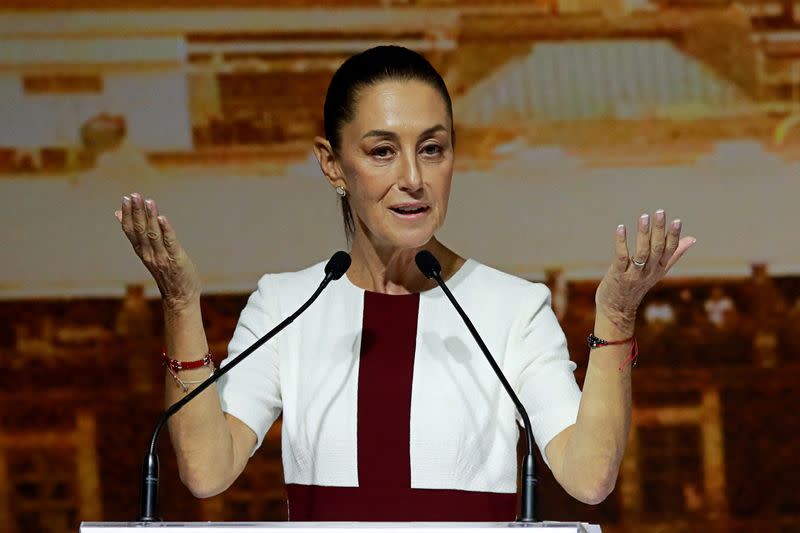Mexico's Sheinbaum vows responsible spending, defends judicial reform

MEXICO CITY (Reuters) -Mexico will spend responsibly and control the fiscal deficit next year without raising taxes, President-Elect Claudia Sheinbaum said on Wednesday, while defending a judicial overhaul that has spooked markets since her party secured a landslide victory in general elections.
"We are preparing a very responsible budget," Sheinbaum told business people at an event in Mexico City. "Our objective is that the deficit in 2025 will be a maximum of 3.5% of GDP, this year it will be closing over 5%."
The new goal would outpace that of the government of outgoing President Andres Manuel Lopez Obrador which had already set a goal for a deficit at around 3% of GDP for next year, as measured by the public sector borrowing requirements (PSBR), according to a budget pre-criteria published in March.
Sheinbaum said her administration would look to boost tax take via other avenues, such as digitalizing customs and the internal revenue service.
Mexico's budget deficit this year is the highest rate since the 1980s as Lopez Obrador splurged on social spending and to complete major infrastructure works such as a new refinery and tourist train.
Sheinbaum defended again a major judicial reform, proposed earlier this year by Lopez Obrador, which would look to elect judges - including the Supreme Court - by popular vote. The president-elect said the judicial reform would not represent a concentration of power or a shift towards authoritarianism.
The increasing likelihood that a version of this reform could be passed when the newly elected legislature takes office in September has scared markets, with the peso down around 8.5% since the June 2 election.
Some investors fear the overhaul could allow the political capture of the judiciary and remove vital checks and balances over the president and ruling party.
(Reporting by Raul Cortes; Writing by Stephen Eisenhammer; Editing by Anthony Esposito and Josie Kao)


